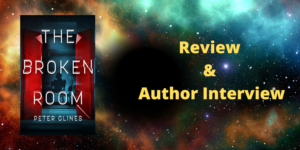“Love, love, love this book!”
“Moonlight & Oranges swept me away on a delectable journey of the senses and soul.”
The Interview
Tell us about your Novel, a retelling of Psyche and Cupid, Moonlight and Oranges. What prompted it. You have great Q and A’s on your blog.
Thank you! I assume you’re referring to the five things I did that brought me to this successful place blog post Looking Back. I think that in general, those five things are incredibly helpful to everyone.
I knew I wanted to write the story when I discovered that there was more to the fable than a marriage in which the bride never gets to see her husband and then she looks at his face and he leaves. *Yawn* As soon as I realized that the story continued, that Psyche went off to find Cupid, that Aphrodite laid a series of deathtraps for her daughter-in-law, I was absolutely dying to retell it in novel form.
In Moonlight and Oranges I’ve intermixed a love-at-first-sight romance with a young bride’s challenge of trying to fix the mess she’s made of her love story, while at the same time facing threats from a mother-in-law who wants only one thing—her daughter-in-law’s destruction.
I think that the reason we still have old myths with us today is because they resonate with generation after generation. Otherwise, they would have just died out as a fad. Myths are compelling to modern audiences because the heroes are still facing what we have to face today—broken marriages, illness, relational strife, family drama, identity, self-worth, inner demons, etc. As soon as I strip away the special powers of Aphrodite as a goddess, I get a manipulative mother-in-law who wants to make hell for the new woman in the family. That becomes very relatable, even if my readers relate to having to deal with a vicious aunt or a jealous ex-girlfriend. And for the record, my relationship with my mother in law is quite healthy. We don’t get into screaming matches over the phone or threaten each other or anything like that. She loves me very much.
So far, things have been great. I began working with Booktrope without an agent. I’d still love an agent, but for now, I’m doing it on my own. I love the amount of teamwork in our arrangement. For example, I had a lot of control over my book cover design—I keep getting excellent feedback on it—and I got to have someone who works with me directly on the book’s marketing so that I didn’t have to do it all by myself, which was an enormous relief. There is always a tradeoff—going with big publishers versus little ones—but all the doors opened wide for me with Booktrope, and my heart has been warmed by the amazing people I work with. I’m glad to be where I am.
I wish I’d known about how helpful it is to have a close group of writing friends read my manuscript. Moonlight and Oranges went through so many revisions before my critique group saw it, and then when they began to pull it apart for the bizillionth time, I was half an inch away from despair, because I was exhausted with the writing of it. I realized, as I worked through the manuscript with them, that I should have shown them earlier drafts that weren’t “perfect” so that I didn’t spend as much time slamming my head against a wall, trying to work out the kinks on my own. That said, there’s still the challenge to make my work as good as I possibly can before it meets the eyes of my critique group, because I know they’ll find holes that I never knew were there. Bottom line—get your work read by fellow readers as soon as you can bear it.
Another novel! I’m also praying that it’s not nearly as much of a beast to revise as Moonlight and Oranges. It is an urban fantasy in which a fifteen-year-old boy discovers a magical door that will allow him to see the future. He uses the door on the day he discovers that his alcoholic father has returned to town to see him. I’m discovering a lot more about why to do certain things and why not to do certain things when writing this novel, but I’m feeling like I have more direction for revision than before, which is encouraging.



